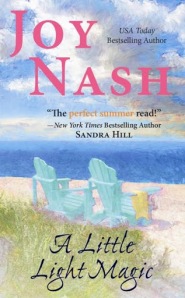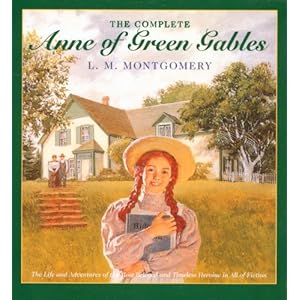Scroll down for english
On parle beaucoup de romance par ici… Bizarre pour un blog de princesses, j’en conviens, mais il faut bien se sacrifier parfois! Mais au juste, c’est quoi, une romance?
Enfin, je dis romance, mais ce pourrait aussi bien être «roman à l’eau de rose», «roman de gare», « littérature sentimentale» ou je ne sais quoi d’autre. Termes légèrement péjoratifs je trouve, je ne peux pas me résoudre à les utiliser. Romance donc. Si on reprend strictement la définition du dictionnaire, une romance, c’est une « pièce de vers, d’inspiration populaire, naïve, qui traite de sujets élégiaques, amoureux et qui peut être mise en musique ». Oui, le lien avec nos livres n’est pas flagrant. En fait, on dit romance car c’est l’utilisation littérale du mot utilisé en anglais!
Et si on cherche la définition de « à l’eau de rose »? Réponse : mièvre, fade, insipide, sentimental.
Ah.
Une romance, c’est donc une histoire où sentimental est associé à mièvre, fade et insipide. Pourtant, je ne trouve pas que mes livres soient mièvres, fades, ou insipides. Sentimentaux parfois, oui. Définition de sentimental? Qui accorde de l’importance à l’amour, la tendresse. C’est plutôt vaste ça non? Cela veut donc dire que la romance se trouve dans des livres qui ne sont pas qualifiés en temps que tels. Il s’agit des fameuses « fausses romances » dont j’ai déjà parlé.
Oublions les définitions. Qu’est-ce qui fait que ma royale personne choisit de qualifier un livre de romance, même si il n’est pas estampillé comme tel?
La réponse la plus évidente, c’est bien sur qu’un livre parle d’amour. Mais l’amour, c’est le sujet principal pour des quantités d’écrivains. Prenez la littérature classique, quelque soit son époque, son pays. Roméo et Juliette. Exemple facile, j’admets! Et puis non, je vais me limiter aux français, sinon on y sera encore l’an prochain… Yvain ou le Chevalier au Lion. Andromaque. La Princesse de Clèves. Le Barbier de Séville. Le Cid. La Chartreuse de Parme. Madame Bovary. La Petite Fadette. L’éducation sentimentale. Les liaisons dangereuses. Je pourrais continuer encore longtemps… Qui osera prétendre que ces auteurs n’ont pas parlé d’amour, de sentiments?
Et à qui viendrait-il l’idée de qualifier ces livres de romances? Sûrement pas à moi. Pourquoi? Parce que ce sont des classiques? Probablement. Il y a quelque chose de sacré dans un livre qui a survécu à l’épreuve du temps (et je ne parle pas seulement du martyr que subissent les livres que je transporte dans mon sac)!
Tournons-nous du coté des contemporains. Il existe bien des livres aujourd’hui qui sont publiés comme littérature « généraliste » et qui correspondent à l’idée que je me fait d’une romance, non? Oui.
Mais surtout, parler d’amour ne suffit pas à qualifier une romance! Parmi ces classiques que j’ai cité, beaucoup connaissent une fin tragique. Et je ne vois rien de romantique là-dedans. Ah, on me signale en coulisses que j’ai dit sentimental, pas romantique. Ces livres sont sentimentaux. Les romances aussi. Mais il y a un truc en plus, le fameux happy-end!!! Et de Disney à Harlequin, en passant par J’ai lu, les contes de fées et tous les classiques, en ce qui me concerne, une romance, c’est une histoire sentimentale qui finit bien, ni plus, ni moins!
Un seul souci : 8 livres sur 10 publiés dans les 3 dernières années se finissent mal. Ou en queue de poisson. Ou en eau de boudin. Ou un truc innommable, inqualifiable, que je ne mentionnerais pas ici parce que je suis une princesse polie. Bref, les écrivains d’aujourd’hui aiment les fins malheureuses.
Mais POURQUOI tant de haine??!
A croire qu’une fin malheureuse est la garantie de la qualité littéraire du roman? On reproche aux romances d’être des histoires faciles. Au nom de quoi est-ce plus facile d’écrire un livre avec un happy-end qu’une fin malheureuse? Il existe des quantité de livres écrits avec les pieds qui finissent mal, comme il existe des œuvres exquises se terminant bien! Dans une romance, il peut arriver les pires malheurs du monde, tant que le mot de la fin est positif. Et si l’auteur est habile, le lecteur n’a pas la sensation d’une histoire tirée par les cheveux, mais d’un livre bien écrit.
Ce que j’aime finalement dans la romance officielle c’est qu’elle ne se cache pas : on y parle d’amour, mais pas de sentiments niais, mièvre, fades ou insipides. On y parle des rapports entre les gens, de l’influence que leur sentiments peuvent avoir sur leur vie.
Et un bon auteur de romance à une plume qui n’est pas moins raffinée ou poétique que celle de n’importe quel autre auteur. Simplement, cet auteur a choisi un éditeur qui s’adresse a son public directement. Cela aussi qualifie la romance aujourd’hui. L’éditeur.
Il y a quelques années, quand Harlequin a commencé à développer sa collection Mira, l’un de mes amis avait reçu en cadeau deux livres de Nora Roberts, des policiers assez noirs. Cet ami méprisait la romance. De la littérature de gare disait-il. Un Harlequin? Mais quelle horreur, tu ne vas quand même pas sortir un truc pareil en public??! Mais sortir « Et vos péchés seront pardonnés » en public, aucun souci… jusqu’au jour où il a réalisé l’éditeur de ce nouveau livre qu’il se régalait à lire.
C’est un Harlequin, c’est une romance, où est la mièvrerie?
J’ai bien regardé entre les pages, au fond de mon sac, derrière l’étagère, sous le lit, rien…
Je crois bien que finalement, la romance, ce n’est pas une catégorie, un genre de la littérature. C’est un état d’esprit.
Chi-Chi
We talk a lot about romance here… I admit that’s pretty strange on a blog run by two princesses, but sometimes you have to force yourself! But what exactly is a romance novel?
For a start, I said romance, but I could also say « sappy books » or « a beach read » or « sentimental novels » or I don’t know what. All these terms are somewhat pejorative, I find, and I can not bring myself to use them. Let’s say Romance, then. If I look up the precise definition in a dictionary, it says « a play in verse, naïve, based on folklore, which deals with love in a melancholic way and can be set to music ». OK, the connection with the books we read is not obvious. Plus, in French we use this word because it is a direct translation of the English word.
So, if we look in the dictionary for the definition of « sappy »? Answer: mushy, bland, insipid, sentimental.
Ah.
According to this, a romance is a story where sentiments are associated with being mushy, bland and insipid. Yet I do not find the books I read mushy, bland and insipid. Yes, they are sentimental sometimes. Definition of sentimental: Which attaches importance to love and affection. That’s a pretty vast definition, wouldn’t you say? That means that you can find romance in some books which are not usually put in that category, like the infamous « fake romances » which I have already talked about.
Let’s forget the definitions. What is it about a book which makes this Royal Highness call it a romance, even if the cover doesn’t mention it?
The most obvious answer is, of course, that the book talks about love. However, love is the main subject treated by many writers. If we look at classical literature, there are loads, whatever period or country we choose. Romeo and Juliette, for example. Okay, that was an easy one, I admit. Even if I limit myself to French writers, because otherwise we will still be here next Christmas… Yvain, the Knight with the Lion, Andromaque, la Princesse de Cleves, The Barber of Seville, Le Cid, The Charterhouse of Parma, Madame Bovary, La Petite Fadette, Sentimental Education, Dangerous Liaisons… I could go on and on… Who would dare to claim that these books didn’t talk about love and affection?
And who would think of calling these books romances? Not me, that’s for sure, but why? Because they are classical books? Probably. There is something sacred about a book which has stood the test of time, and I am not referring to the tourment suffered by those which I carry around in my bag! Let’s look at contemporary literature. There must be some books which are published under the heading of general literature and which correspond to my idea of a romance, aren’t there? Yes, of course.
First and foremost, talking about love is not enough to qualify as a romance! Many of the classics I mentioned end badly, and I can not find anything romantic in that. Wait, a voice « off » is reminding me that I called them sentimental, not romantic. These books are sentimental, so are romances, but romances have something extra: the famous happy end! From Disney to Harlequin, from fairy tales to the classics, and even to some French editors, for me, a romance is a sentimental story which has a happy end, nothing more, nothing less!
The only problem is that 8 out of 10 books published in the past three years end badly. Either they peter out, or they are a let-down, or they end in some monumental catastrophe which I am unable to describe with my polite ladylike vocabulary. In short, today’s writers seem to like unhappy ends.
Why, cruel universe, why?
It seems as though a sad ending is the sign of the literary quality of a novel. Romances are criticised as being light reading. Why should it be easier to write a happy ending than a sad one? Many poorly written books end badly, whereas some very fine works have a happy ending! In a romance, the woes of the world may fall on to our heroes’ shoulders, but everything ends well, and if the author is a good writer, it will all be done without feeling too contrived and unconvincing.
What I like, finally, in an « official » romance, is that it is out in the open. It talks about love, but not about silly, mushy, bland or insipid emotions. It talks about relationships and about the influence that our feelings can have on our lives. The style of a good romantic novelist is no less refined or poetic than that of any other writer. She has simply chosen a publishing house which can be clearly recognised by its readers, since this is another way of recognising modern romance, by the publisher.
A few years ago, when Harlequin France started to develop the Mira collection, large trade paperbacks, one of my male friends received two books by Nora Roberts, quite dark thrillers, as a present. He despised romances and called them « airport novels ». He was ashamed if I read a Harlequin romance in public, but had no qualms about reading « Sacred Sins » in front of other people, until the day when he realised who had published the new book he was enjoying so much.
So, a book can be a Harlequin, a romance, but it is not necessarily mushy. I have checked every page for mushiness, looked at the bottom of my bag, behind the bookshelf, under the bed, no sign of mushiness whatsoever…
Finally, I think that romance is not a category, nor a literary genre. It is a state of mind.
Chi-Chi









